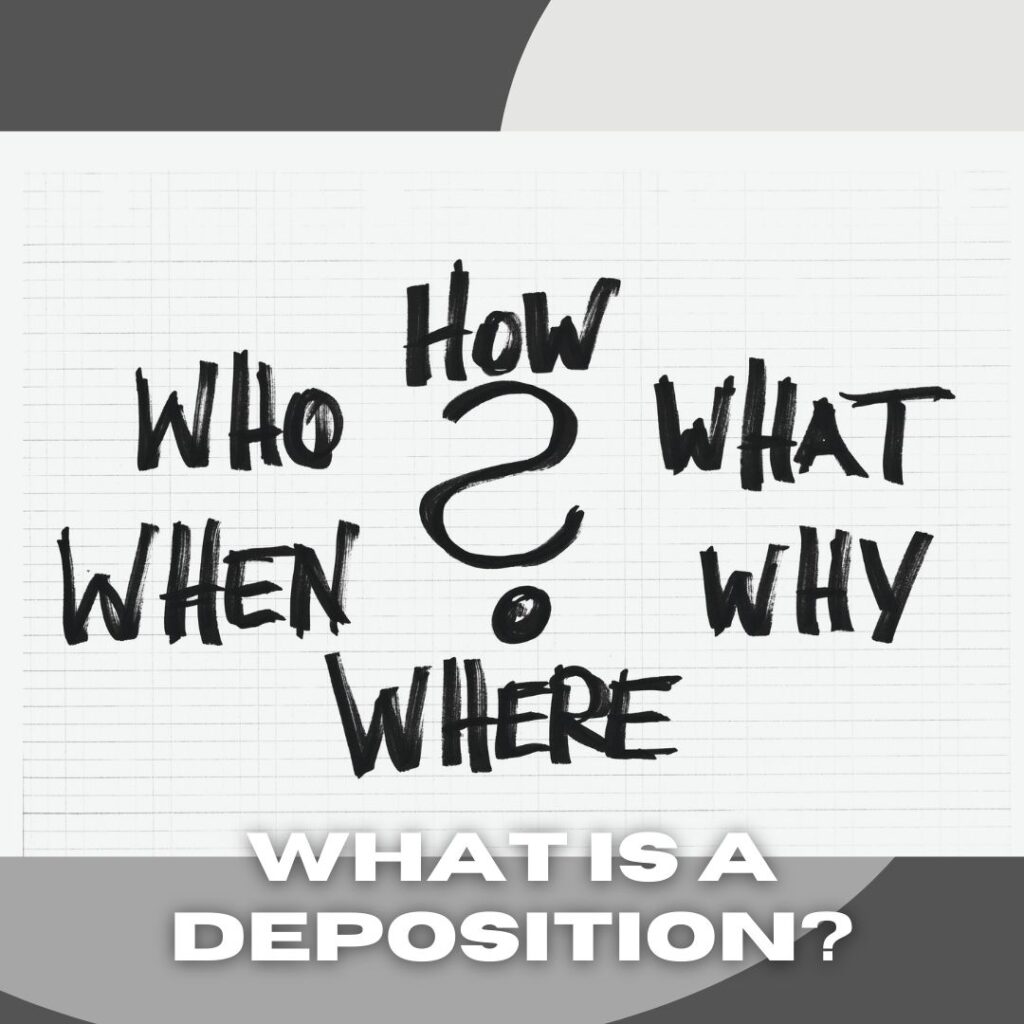Over the next couple of weeks, we will dive into depositions – what they are, how they are used, how to prepare for them, and what to be aware of. Depositions are a vital tool in a trial lawyer’s arsenal and civil cases are often successfully settled or won based on information gained during a deposition. So, lets dive in.
WHAT IS A DEPOSITION?
In a civil lawsuit, any party to the lawsuit can require a prospective witness to submit to an out-of-court examination, under oath, before a court reporter. This examination is called a deposition. A deposition is virtually the same as giving testimony in court, except that no judge or jury is present.
At a deposition, lawyers question the witness concerning any matters which might lead to evidence that can be admitted at trial. All of the lawyers involved in the case have the opportunity to be present and question the witness.
In the coming weeks, we will be looking at HOW IS DEPOSITION TESTIMONY USED, and DEPOSITION CONDUCT AND PROCEDURES.

The material contained herein is provided for informational purposes only and is not legal advice, nor is it a substitute for obtaining legal advice from an attorney. Each situation is unique, and you should not act or rely on any information contained herein without seeking the advice of an experienced attorney. All information contained in links are the property of the linked site.

